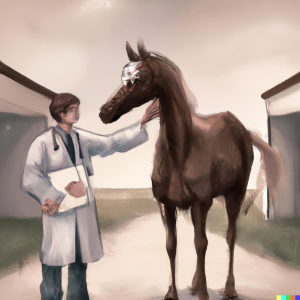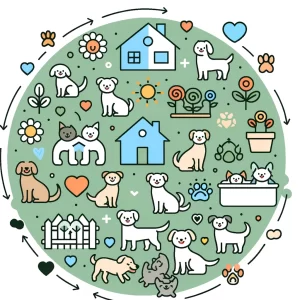
Understanding Our Canine Companions: Insights on Dog Welfare and Mistreatment in Brazil
In a world where nearly half of Brazilian households boast at least one dog, understanding how to care for these animals isn’t just a personal concern but a societal responsibility. A recent study published in PLoS ONE sheds light on the Brazilian population’s knowledge and attitudes towards dog welfare and mistreatment, revealing both commendable insights and areas needing urgent attention.
What is Animal Welfare?
Animal welfare refers to the quality of life experienced by an animal and is a measure that encompasses both physical and psychological well-being. The concept is based on the “Five Freedoms” which include freedom from hunger and thirst, discomfort, pain, injury, or disease, the ability to express normal behavior, and freedom from fear and distress.
The Study’s Findings
The study analyzed responses from 1,353 participants, using a survey adapted from the Animal Welfare Examination Protocol. This tool is commonly used by veterinarians to identify cases of neglect, which is the most prevalent form of animal mistreatment. The survey assessed various indicators of animal welfare including nutrition, comfort, health, and behavior.
Nutritional Care: Most respondents showed good knowledge about providing clean water and quality food, which are fundamental for good health.
Comfort: This area revealed concerns, particularly regarding the physical environment provided to dogs. Questions related to the comfort of resting surfaces and the adequacy of space highlighted significant gaps in public knowledge.
Health and Behavior: Participants generally understood the importance of health care, such as vaccinations and flea control. However, some gaps persisted in recognizing the behavioral needs of dogs, such as the necessity for social interactions and exercise.
Gender, Income, and Dog Ownership Impact Responses
Interestingly, the study found significant associations between the adequacy of responses and factors like gender, family income, and whether the respondents owned dogs. Women and dog owners tended to provide more appropriate answers, suggesting they are more attuned to the needs of dogs. This finding underscores the potential for targeted educational campaigns that consider these demographic factors.
Cultural Influences and Educational Gaps
Despite high levels of basic knowledge, the lack of a significant correlation between educational levels and suitable responses highlights a crucial point: knowledge alone isn’t enough. Cultural practices and long-standing beliefs about animal care play a substantial role in how animals are treated. This finding suggests a need for community-specific educational programs that go beyond traditional schooling and address local beliefs and practices.
Why This Matters
Understanding and improving animal welfare is crucial not only for the animals but also for the community at large. Well-cared-for animals are less likely to spread disease, be involved in attacks, or cause other community issues. Moreover, how a society treats its animals reflects its values and empathy, impacting social and psychological welfare.
Moving Forward
This study is a call to action for all stakeholders involved in animal welfare and public health in Brazil. The findings suggest that while there is a solid foundation of knowledge, there is still much work to be done, particularly in areas of comfort and behavior understanding. Implementing more robust educational programs that address these gaps is essential for ensuring that dogs in Brazil can lead happy, healthy lives.
Engage with Us
What are your thoughts on animal welfare? How do you care for your pets? Share your stories and tips with us in the comments below!
Empower Your Public Health Journey – Subscribe and Transform!
Unlock the transformative power of knowledge with ‘This Week in Public Health.’ Each issue is a treasure trove of insights into crucial research, community health achievements, and advocacy strategies. Don’t just read about change – be the agent of it. Subscribe for free and start making an impact with each edition!
About the Author
Jon Scaccia, with a Ph.D. in clinical-community psychology and a research fellowship at the US Department of Health and Human Services with expertise in public health systems and quality programs. He specializes in implementing innovative, data-informed strategies to enhance community health and development. Jon helped develop the R=MC² readiness model, which aids organizations in effectively navigating change.



